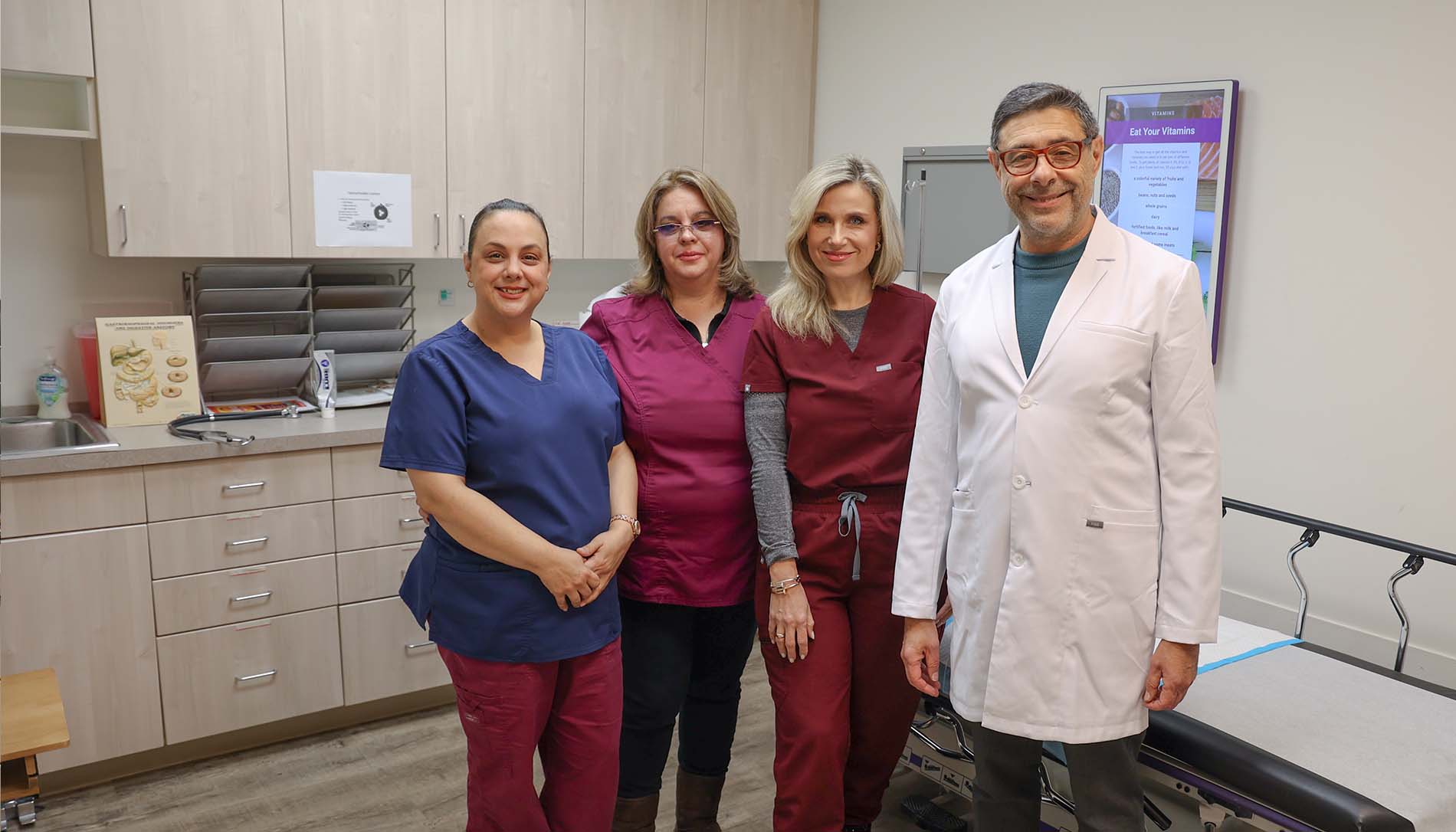Celiac Disease

Celiac disease (also known as sprue, gluten intolerance or gluten-sensitive enteropathy) is a condition that damages the lining of the small intestine and prevents it from absorbing parts of food that are important for staying healthy. The damage is due to a reaction to eating gluten, which is found in wheat, barley, rye and, possibly, oats.
The lining of the intestines contains areas called villi, which help absorb nutrients. When people with celiac disease eat foods or use products that contain gluten, their immune system reacts by damaging these villi. This damage affects the body’s ability to absorb nutrients properly. Someone with celiac may become malnourished, no matter how much food he or she eats. The disease can develop at any point in life, from infancy to late adulthood.
Symptoms
The symptoms of celiac disease can be different for each person; this makes diagnosing celiac disease very complicated. For example, one person may have constipation, a second may have diarrhea and a third may have no problem with stools.
Gastrointestinal symptoms of celiac disease may include:
• Abdominal pain, bloating, gas or indigestion
• Constipation
• Changes in appetite
• Diarrhea, either constant or off and on
• Lactose intolerance (common when the person is diagnosed, usually goes away after treatment)
• Nausea and vomiting
• Stools that float, are foul smelling, bloody or “fatty”
• Unexplained weight loss (although people can be overweight or of normal weight)
Because the intestines do not absorb enough vitamins, minerals and other nutrients, the following symptoms of malnutrition may appear over time:
• Bruising easily
• Depression or anxiety
• Fatigue
• Growth delay in children
• Hair loss
• Itchy skin (dermatitis herpetiformis)
• Missed menstrual periods
Children with celiac disease may have:
• Defects in the tooth enamel and changes in tooth color
• Delayed puberty
• Diarrhea, constipation, fatty or foul-smelling stools, nausea or vomiting
• Irritable and fussy behavior
• Poor weight gain
• Slowed growth and shorter-than-normal height for their age
Diagnosis
Blood tests can detect several special antibodies, called anti-tissue transglutaminase antibodies (tTGA) or anti-endomysium antibodies (EMA). Your doctor will order these antibody tests if celiac disease is suspected.
If the tests are positive, upper endoscopy is usually performed to sample a piece of tissue (biopsy) from the first part of the small intestine (duodenum). The biopsy may show a flattening of the villi in the parts of the intestine below the duodenum.
A follow-up biopsy or blood test may be ordered several months after the diagnosis and treatment. These tests evaluate your response to treatment. Normal results mean that you have responded to treatment, which confirms the diagnosis. However, this does not mean that the disease has been cured.
Treatment
Celiac disease cannot be cured. However, your symptoms will go away and the villi in the lining of the intestines will heal if you follow a lifelong gluten-free diet. Do not consume foods, beverages or medications that contain wheat, barley, rye or, possibly, oats.
You must read food and medication labels carefully to look for hidden sources of these grains and ingredients related to them. Because wheat and barley grains are common in the American diet, sticking with this diet is challenging. With education and planning, you will heal.
You should NOT begin the gluten-free diet before you are diagnosed. Starting the diet will affect testing for the disease.
If symptoms persist call Gastrocure in West Orange, NJ at 973-736-1112 to schedule an appointment

